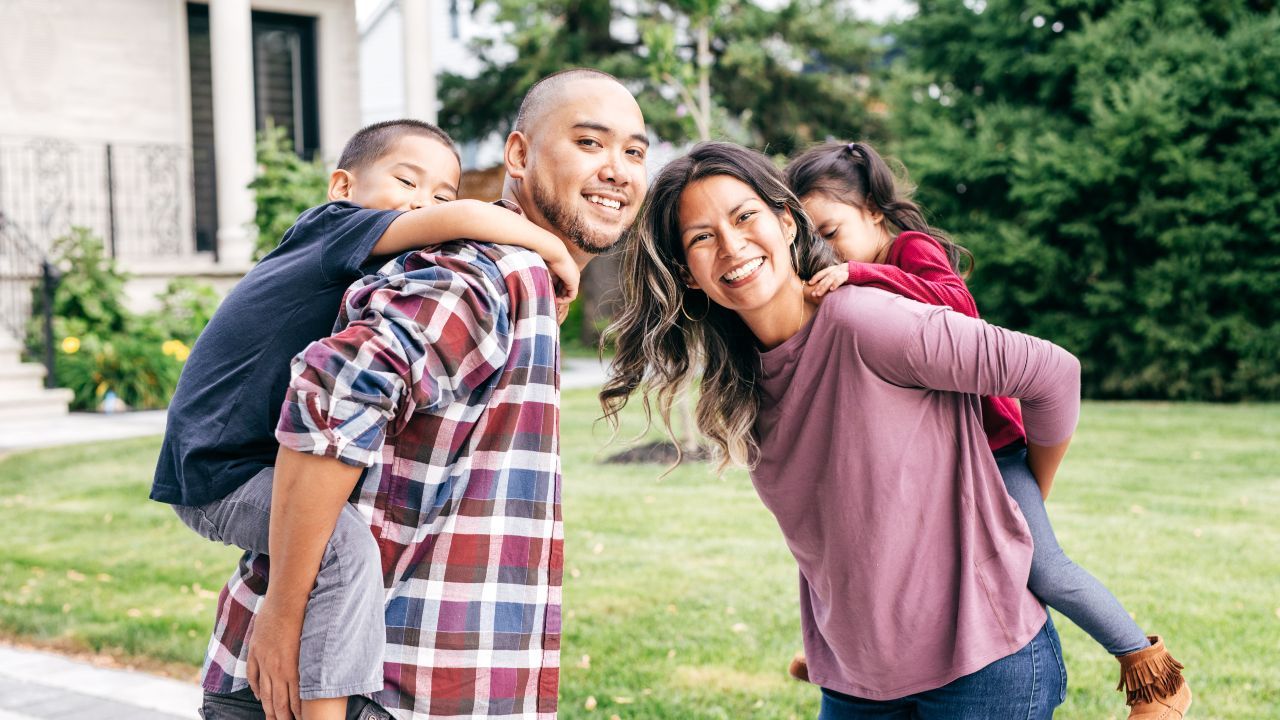Vacant Home Insurance In South Carolina

9:00am - 5:00pm Mon-Fri
Will Reply in 15min*
Index
Contact Us
Phone
864-626-6181
service@southerninsured.com
Location
5 Century Drive Suite 130 Greenville, SC 29607
810 Dutch Square Boulevard, Suite 123 Columbia, SC 29210
Vacant home insurance is a crucial aspect to consider when you own a property in South Carolina that is unoccupied for an extended period. Whether you are a homeowner or an investor, understanding the ins and outs of vacant home insurance is essential to
protect your financial investment.
Understanding Vacant Home Insurance
Before delving into the specific insurance requirements for vacant homes in South Carolina, let's first establish what vacant home insurance entails. Vacant home insurance is a specialized form of coverage designed to protect properties that are not occupied by homeowners or tenants for an extended period. It provides financial protection against various risks, such as vandalism, fire, theft, and liability claims.
When a property remains unoccupied for an extended period, it becomes more susceptible to risks that can lead to significant financial losses. Vacant home insurance recognizes this increased vulnerability and offers coverage tailored to address the unique challenges of unoccupied properties.
Definition of Vacant Home Insurance
Vacant home insurance typically covers properties that have been unoccupied for a minimum of 30 consecutive days. It differs from traditional homeowners' insurance as it takes into account the increased risks associated with unoccupied properties. Given the vacant nature of the property, the risks of damage and liability are higher, making specialized coverage necessary.
When a property is vacant, there is an increased risk of vandalism, as there is no one present to deter potential intruders. Additionally, the absence of regular maintenance and upkeep may lead to issues such as water damage, mold growth, or pest infestations. Vacant home insurance provides coverage for these risks, ensuring that property owners are protected financially.
Importance of Vacant Home Insurance
Having vacant home insurance is of utmost importance for property owners in South Carolina. Without proper insurance, you may face substantial financial losses if an unexpected incident occurs. Vacant properties are particularly vulnerable to break-ins, vandalism, and other damages, which can result in costly repairs and replacements.
Moreover, liability claims can arise from accidents that occur on the property, putting your financial assets at risk. For example, if someone trespasses on your vacant property and gets injured, you may be held liable for their medical expenses and other damages. With vacant home insurance, you can have peace of mind knowing that you are adequately protected against these potential risks.
It is worth noting that vacant home insurance is not just for long-term vacancies. Even if you plan to leave your property unoccupied for a short period, such as during renovations or while it's on the market, having vacant home insurance is crucial. It provides coverage for unforeseen events that can occur during these temporary vacancies, safeguarding your investment.
Furthermore, vacant home insurance can also offer additional benefits, such as coverage for loss of rental income. If you own a rental property that becomes vacant, this coverage can help compensate for the lost rental income while you search for new tenants.
In conclusion, vacant home insurance is a specialized form of coverage that protects property owners from the increased risks associated with unoccupied properties. It provides
financial protection against vandalism, fire, theft, liability claims, and other potential damages. Whether your property will be vacant for a short or extended period, having vacant home insurance is essential to safeguard your investment and provide peace of mind.
South Carolina's Insurance Regulations
When it comes to vacant home insurance, it is crucial to understand the specific regulations and requirements set forth by the state of South Carolina. Familiarizing yourself with these regulations will ensure that you comply with the law and have the necessary coverage in place.
South Carolina, known for its beautiful landscapes and historic charm, has its own unique set of insurance regulations. These regulations are designed to protect homeowners and their properties from unforeseen circumstances. Whether you own a vacation home, a property under renovation, or a house awaiting sale, understanding the state's requirements for vacant home insurance is of utmost importance.
State Requirements for Vacant Home Insurance
While South Carolina does not have specific laws mandating vacant home insurance, it is highly recommended to have this type of coverage for your unoccupied property. Standard homeowners' insurance policies may not adequately protect vacant properties, and it is essential to secure a policy that specifically accounts for the increased risks associated with vacancy.
When you think about it, vacant homes are more vulnerable to various risks. Without the presence of occupants, there is an increased likelihood of theft, vandalism, and property damage. Additionally, unoccupied properties are more susceptible to fire hazards, water leaks, and natural disasters. Therefore, having the right insurance coverage is crucial to safeguarding your investment and ensuring peace of mind.
Legal Implications of Not Having Proper Insurance
Not having proper insurance for your vacant home can have severe legal implications. In the event of an accident or damage, you may be held liable for any injuries or losses that occur on your property. Without insurance, you risk facing hefty legal bills, costly settlements, and potentially losing your property or other assets.
Imagine a scenario where a visitor to your vacant property suffers an injury due to a hazardous condition. Without the appropriate insurance coverage, you could be held responsible for their medical expenses, rehabilitation costs, and even legal fees. This could lead to financial devastation and put your other assets at risk.
By ensuring you have the proper vacant home insurance coverage, you protect yourself from these legal implications and potential financial ruin. With the right policy in place, you can have peace of mind knowing that you are adequately protected against any unforeseen circumstances that may arise during the period of vacancy.
Types of Vacant Home Insurance Coverage
Now that we understand the importance and legalities of vacant home insurance in South Carolina, let's explore the different types of coverage available to adequately protect your property.
When it comes to vacant home insurance, there are various options to consider. Each type of coverage offers specific protection against different risks and liabilities that vacant properties may face. By understanding these coverage options, you can ensure that your property is adequately protected.
Comprehensive Coverage
Comprehensive coverage provides extensive protection for your vacant home. It usually includes coverage for damages caused by fire, water damage, natural disasters, and vandalism. This coverage offers financial security against a wide range of potential risks, giving you peace of mind.
With comprehensive coverage, you can rest assured that your property is protected from unforeseen events such as fires, which can cause significant damage. Additionally, it safeguards against water damage, which can occur due to leaks or burst pipes. Natural disasters, such as hurricanes or earthquakes, are also covered under this policy, ensuring that you are financially protected in the face of such catastrophic events.
Moreover, comprehensive coverage includes protection against vandalism. Vacant properties are often targets for vandals who may cause extensive damage to the structure or its contents. With this coverage, you can have the necessary financial support to repair or replace any damages caused by acts of vandalism.
Vandalism and Burglary Coverage
Vandalism and burglary coverage specifically safeguards your property against intentional damage and theft. Vacant properties are more susceptible to acts of vandalism or break-ins, making this coverage essential. With this coverage, you are protected against any repairs or replacements resulting from such incidents.
When a property is vacant, it becomes an attractive target for criminals looking to vandalize or steal valuable items. Vandalism and burglary coverage ensures that you are financially protected in the unfortunate event of such incidents. It covers the cost of repairs or replacements for any damages caused by vandalism and compensates for stolen items.
By having vandalism and burglary coverage, you can deter potential criminals and minimize the financial impact of their actions. This type of coverage provides peace of mind, knowing that your vacant property is safeguarded against intentional damage and theft.
Liability Coverage
Liability coverage is crucial for protecting you against potential lawsuits and claims arising from accidents or injuries that occur on your vacant property. It provides financial assistance in covering legal fees, medical expenses, and potential settlements in case someone gets hurt on your property.
Accidents can happen anywhere, including vacant properties. If someone were to get injured while on your property, you could be held liable for their medical expenses, legal fees, and potential settlements. Liability coverage ensures that you are financially protected in such situations.
By having liability coverage, you can mitigate the financial risks associated with accidents on your vacant property. It provides the necessary funds to cover legal expenses and potential settlements, giving you peace of mind and protecting your financial well-being.
Remember, accidents can occur unexpectedly, and having liability coverage is a responsible choice to protect yourself from potential legal and financial consequences.
Factors Influencing the Cost of Vacant Home Insurance in South Carolina
While vacant home insurance is essential, it is equally crucial to understand the factors that influence the cost of your insurance premiums. Being aware of these factors will help you make informed decisions and secure the best insurance policy for your needs.
Location and Crime Rate
The location of your vacant property plays a significant role in determining your insurance premium. Areas with high crime rates may require higher coverage limits, leading to increased premiums. Additionally, properties located in areas prone to natural disasters or extreme weather conditions may also command higher insurance rates.
Condition and Age of the Property
The condition and age of your vacant property are also factors that insurers consider when determining your insurance premiums. Older properties or buildings in poor condition may face higher risks of damage or maintenance issues, resulting in higher premiums.
Coverage Limits and Deductibles
The coverage limits and deductibles you choose for your vacant home insurance policy can also impact the cost of your premiums. Higher coverage limits and lower deductibles generally lead to higher premiums, as you are extending the financial protection provided by the insurance company.
How to Choose the Right Vacant Home Insurance Policy
Now that we have explored the various aspects of vacant home insurance, let's discuss how to choose the right policy for your specific needs.
Evaluating Different Insurance Providers
When selecting an insurance provider for your vacant home insurance, it is crucial to assess and compare multiple options. Consider factors such as the provider's reputation, financial stability, and customer reviews. It is also essential to evaluate the specific coverage options and policy terms offered by each provider.
Understanding Policy Terms and Conditions
Before committing to a vacant home insurance policy, make sure you thoroughly understand the terms and conditions. Pay close attention to coverage limits, deductibles, exclusions, and any additional endorsements or riders that may be necessary for your specific property.
Assessing Your Coverage Needs
Lastly, assess your coverage needs based on the specific characteristics and risks associated with your vacant property. Consider the location, condition, and current market value of your property to determine the appropriate coverage limits and endorsements.
In conclusion, vacant home insurance is a critical investment for property owners in South Carolina. With the risk of vandalism, theft, liability claims, and unforeseen damage, having proper insurance coverage is essential to protect your financial investment and provide peace of mind. By understanding the regulations, types of coverage, and factors influencing premiums, you can make informed decisions and secure the right policy for your vacant home.






